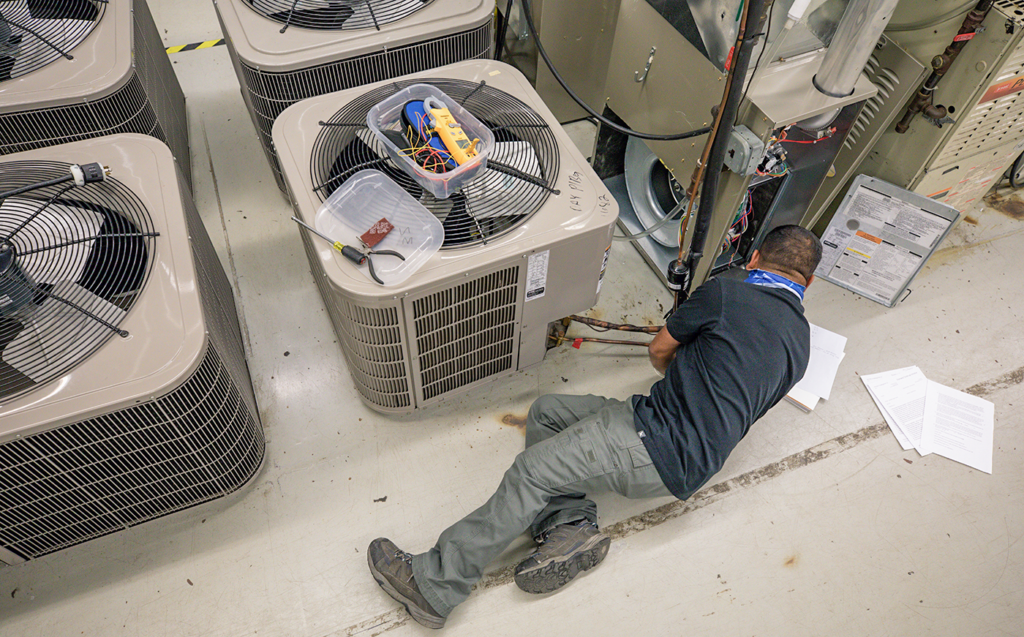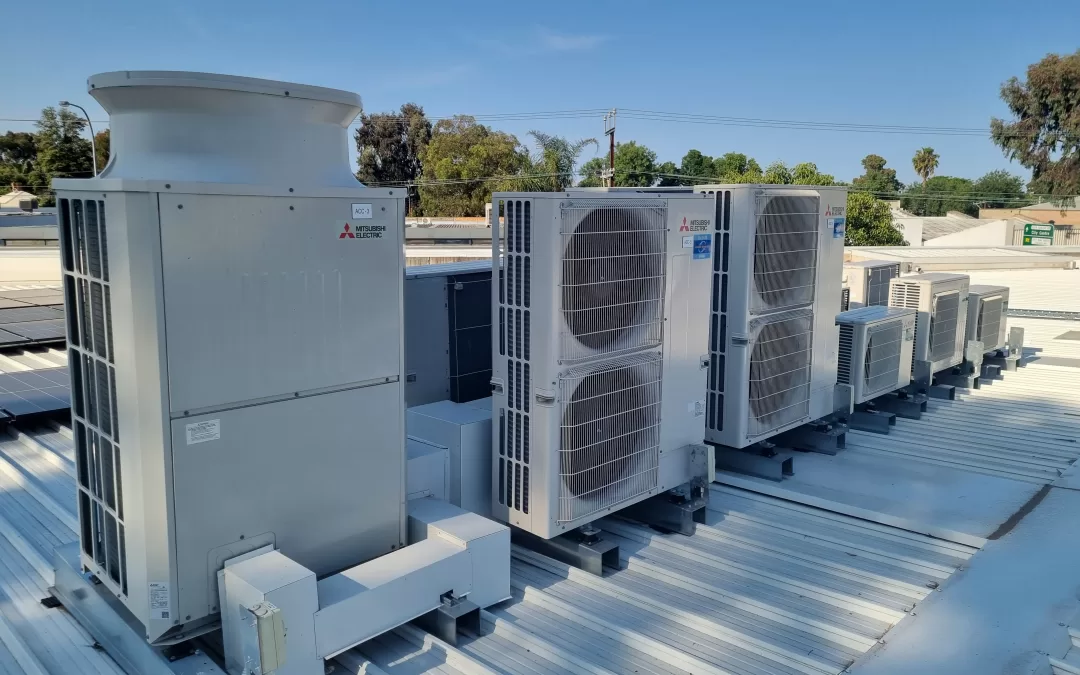Professional Furnace Repair Experts For Commercial Heating And Cooling Needs
Professional Furnace Repair Experts For Commercial Heating And Cooling Needs
Blog Article
Your Guide to Choosing the Right HVAC System for Your Requirements
Selecting an ideal Cooling and heating system is an essential choice that can considerably impact convenience and power effectiveness in your home. In addition, comprehending the different types of systems available and their power scores can help lead your option.
Comprehending Cooling And Heating System Kind
When selecting a HVAC system, it is necessary to recognize the numerous types offered to satisfy your particular demands. The main categories of HVAC systems consist of air conditioning systems, ductless mini-split systems, warmth pumps, and furnace systems.
Air conditioning systems are designed to cool down multiple areas using ductwork to disperse conditioned air. They are perfect for bigger homes requiring regular temperature control. Ductless mini-split systems, on the various other hand, offer flexibility and effectiveness, as they permit zoning abilities, making it possible for private area temperature guideline without the demand for ductwork.
Warmth pumps run by transferring heat rather than producing it, making them an energy-efficient alternative for both home heating and air conditioning. Conversely, furnace systems make use of combustion to produce heat, using either electrical power, gas, or oil.
Each system has unique advantages and factors to consider, consisting of setup demands, maintenance, and general expenses. Comprehending these types will help home owners make educated choices based upon their certain requirements, climate, and budget constraints, ultimately ensuring optimum comfort and effectiveness.
Assessing Energy Efficiency
Power effectiveness is a crucial variable in the choice of a HVAC system, as it straight influences both utility costs and ecological sustainability. The Seasonal Energy Performance Ratio (SEER) and the Heating Seasonal Efficiency Element (HSPF) are essential indicators for air conditioning systems, representing their performance over a typical air conditioning and heating period, specifically.
Furthermore, seek systems that have made the power STAR label. This qualification indicates that the equipment satisfies rigorous energy effectiveness standards established by the U.S. Epa. Consider the system's variable-speed innovation, which permits more effective procedure by readjusting the output to match demand, even more improving power financial savings.
Furthermore, correct insulation and duct sealing can substantially affect the system's total performance. In summary, selecting an energy-efficient a/c system not just decreases your energy bills however likewise adds to a much more lasting setting, making it a crucial consideration in your purchasing process.
Assessing System Size
Choosing the proper dimension for a cooling and heating system is crucial to ensuring optimal efficiency and performance. A small system might battle to maintain desired temperatures, causing raised damage, greater power usage, and decreased comfort. Conversely, an extra-large system can cause fast cycling, which not only creates inadequacies however likewise affects moisture control and air top quality.
To examine the ideal sizing, it is important to conduct a lots estimation, which thinks about elements such as the square footage of the room, insulation levels, window dimensions, and regional environment problems - air duct cleaning coquitlam. This estimation assists determine the British Thermal Devices (BTU) required for heating and air conditioning. Additionally, it is essential to account for specific demands, such as the number of owners and the existence of heat-generating appliances

Installation Costs and Budget
An extensive understanding of setup expenses is crucial for house owners and services thinking about a brand-new HVAC system. The total expenditure of setup can vary widely based upon numerous elements, including the kind of system, the intricacy of setup, and the place of the residential property. Usually, setup costs can vary from $3,000 to $10,000, relying on the system's size and efficiency.
When budgeting for a heating and cooling system, it is essential to consider not just the preliminary installation costs yet likewise any added costs that may emerge, such as ductwork adjustments, electrical upgrades, or permits. In addition, it is a good idea to obtain numerous quotes from accredited heating and cooling contractors to make certain competitive rates.
House owners should additionally factor in the possible long-term financial savings connected with energy-efficient systems. While the upfront expenses might be higher, energy-efficient versions can my sources result in substantial cost savings on energy bills with time.

Maintenance and Longevity Considerations

Proper maintenance consists of regular inspections, filter replacements, and cleaning of coils and air ducts (hvac). Overlooking these tasks can here are the findings cause lowered performance, increased energy costs, and premature system failure. House owners must additionally take into consideration the schedule of solution contracts, which frequently offer scheduled maintenance and concern service, making sure that the system stays in peak problem
Durability varies by system type; for instance, well-kept central air conditioning systems can last 15 to 20 years, while heatpump may have a lifespan of 10 to 15 years. Selecting a system with a strong reputation for reliability, along More hints with purchasing normal upkeep, can substantially improve the system's toughness. Furthermore, choosing higher-efficiency models may bring about lasting savings on energy costs, stabilizing the preliminary investment with time.
Verdict
In final thought, picking an ideal HVAC system necessitates mindful consideration of numerous variables, including system kinds, energy performance, and dimension. Eventually, an educated decision will improve convenience and efficiency in domestic settings while making the most of power financial savings.
Selecting a suitable Cooling and heating system is a crucial decision that can substantially influence comfort and energy efficiency in your home.Energy effectiveness is an essential factor in the selection of a Heating and cooling system, as it straight affects both energy prices and ecological sustainability. The Seasonal Power Performance Proportion (SEER) and the Home Heating Seasonal Efficiency Factor (HSPF) are vital indicators for air conditioning systems, representing their effectiveness over a common cooling and heating season, respectively. Selecting a system with a strong reputation for reliability, along with investing in regular maintenance, can significantly enhance the system's durability.In conclusion, selecting an appropriate HVAC system demands mindful factor to consider of different aspects, including system types, power performance, and dimension.
Report this page